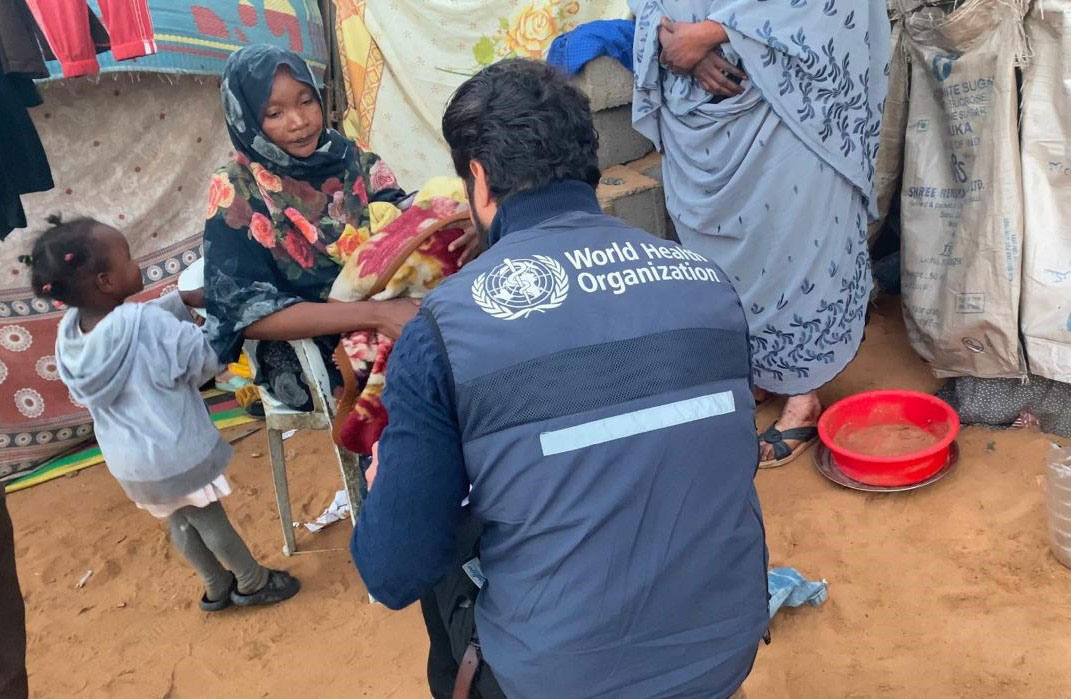
19 December 2024, Tripoli, Libya – For 33-year Hamida, a Sudanese refugee, pregnancy brought both joy and overwhelming challenges.
Living in a camp far from home, Hamida faced the double burden of anaemia and malnutrition, putting her health and the life of her unborn child at severe risk. Without access to proper health care, her pregnancy had become a perilous journey – until the World Health Organization’s (WHO) Emergency Medical Teams (EMTs) stepped in to provide critical support.
Sudanese refugees often endure extreme living conditions, with limited access to food, clean water and health care. For expectant mothers like Hamida, these challenges can lead to life-threatening complications. EMTs, supported by funding from the European Civil Protection and Humanitarian Aid Operations (ECHO), are vital in addressing these gaps, offering comprehensive maternal health care to ensure safer pregnancies and deliveries in vulnerable communities.
In the crowded and resource-strapped conditions of the refugee area in Kufra, accessing specialized care is very difficult. Hamida's situation reflects the broader health risks faced by thousands of refugee women who lack access to maternal health services.
WHO’s EMTs worked tirelessly to ensure Hamida received the care she needed. The teams provided regular prenatal check-ups and iron treatments to manage her anaemia. With ECHO's support, Hamida was transferred to a nearby Obstetrics and Gynaecology Centre on 24 October, where a coordinated effort by WHO’s EMTs and local health professionals ensured a safe delivery.
Throughout her care, Hamida was given guidance on postnatal health and nutritional support to strengthen her recovery and provide a healthy start for her newborn. These interventions underscore the critical role of coordinated health care and international partnerships in protecting maternal and child health in crisis settings.
Nine EMTs are deployed in Kufra to deliver lifesaving health care to women in need, with a strong focus on maternal and child health. From prenatal care to emergency obstetric services, the teams address the needs of women in vulnerable situations. Funded by international donors like ECHO, EMTs delivered over 19 000 services in Kufra between 1 August 2024 and 15 December 2024, ensuring access to quality health care for the most at-risk populations.
“The care and support I received lifted much of the burden I face as a refugee,” said Hamida. “I am deeply thankful for the team’s dedication to keeping me and my baby safe.”
Hamida safely delivered her baby, a 2.3 kg newborn, on 24 October. She is recovering well and receiving follow-up care to monitor her health and support her transition into motherhood.
Through international collaboration and unwavering commitment, WHO and partners like ECHO continue to provide lifesaving care to refugees and vulnerable populations in Kufra and neighbouring areas in Libya.


